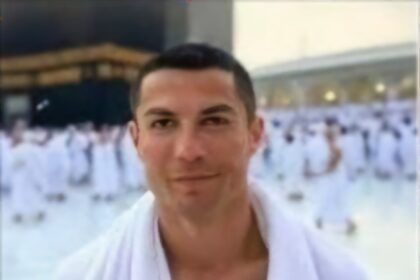Minister of Transportation Rotimi Amaechi yesterday said he never discussed any election petitions dispute with Supreme Court Justice Inyang Okoro in his house or anywhere else.
He also said it was demeaning and childish of a Justice of the Supreme Court to imply that the Department of State Services (DSS) would arrest a judge on the instructions of a minister.
Also yesterday, a former governorship candidate in Akwa ibom State, Mr. Umana Okon Umana, described the allegation that he contacted the Supreme Court Justice to sway the Akwa Ibom governorship election petition judgment in his favour as “baseless”
Amaechi and Umana made the clarifications yesterday in separate statements.
Justice Okoro, one of the judges arrested by the Department of State Services (DSS) over allegation of corruption, in a letter to the Chief Justice Mahmud Mohammed, accused Amaechi and Umana of visiting him at home, seeking to influence the outcome of the election cases in Akwa Ibom, Abia and Rivers states.
In his personally signed statement, Amaechi asked Justice Okoro to stop whipping up unnecessary sentiments against innocent public officers.
The statement said: “My attention has been drawn to a letter purportedly written by Honourable Justice Inyang Okoro JSC, one of the Learned Justices recently arrested by the Department of State Services as part of its investigation into the allegations of massive corruption involving some officers of the Nigerian Judiciary.
“Given the level of mischief in the social media, I would ordinarily have ignored the letter because the allegations contained in the said letter are wild, baseless and unrelated to the issues in contention between the Honourable Justice of the Supreme Court and the Department of State Services, to that extent I had grave reservation if this letter could have emanated from His Lordship.
”However, for the avoidance of doubt, let me say clearly that I have never discussed any matter pending before the Supreme Court of Nigeria with my Lord, Honourable Justice Inyang Okoro JSC, in his house or anywhere else, Period.
“I make bold to also state that the first and only time I have ever spoken with the Chief Justice of Nigeria, the Honourable Justice Mahmud Mohammed GCON was at the Commissioning of the Abuja-Kaduna Railway Project on the 26th of July 2016 at Idu in Abuja.
”The letter by Honourable Justice Okoro is a poor attempt to politicise what is clearly a serious national tragedy and shame. I believe that the issues of corruption at the highest levels of our judiciary should be addressed objectively.
“It is to say the least demeaning and childish of a Justice of the Supreme Court to imply that the security operatives of our nation will arrest a Justice of our Supreme Court for no reason other than the instructions of a Minister.
“Those faced with serious allegations should treat the issue with the seriousness it deserves and stop trying to court public sympathy and trivialize what is clearly a national tragedy.
”I have directed my lawyers to contact my Lord Justice Okoro and take whatever legal steps as may be necessary to clear my name of this baseless allegation.
Umana said: “The meeting Justice Okoro is reporting is a fiction. No such meeting to discuss how to bribe judges took place between him, Mr Umana Okon Umana and Dr (Pastor) Ebebe Ukpong as alleged.
”If we assume, without conceding, that such a meeting took place, for a man of Justice Okoro’s standing and knowledge of the law, he ought to have known the legal implications of such a visit, and should have reported it to the appropriate authorities immediately.
“He did not do that, but he is only reacting after the authorities had established a case against him.
”Justice Okoro’s claim in his purported letter is therefore not only false, it is diversionary and an afterthought.
”Justice Okoro should address himself to the facts of the case, which is between him and the State, and leave Umana out of it.
”Contrary to Justice Okoro’s claim, Umana had no appeal before the Supreme Court arising from any court judgment on the 2015 governorship election in Akwa Ibom State.
“Umana won at the Court of Appeal and therefore was not and couldn’t have been an appellant at the Supreme Court. Umana had won both at the tribunal and at the Court of Appeal. He was therefore confident of victory at the Supreme Court because of the concurrent judgments of the lower courts.
“It will be recalled that after the Supreme Court judgment, which ignored the concurrent judgments of both the tribunal and the Court of Appeal, and also totally disregarded the reports of the international observers, including those of the United States Government and the European Union which stated that the elections in Akwa Ibom and Rivers states were marred by widespread violence and irregularities, Umana had issued a statement expressing disappointment at the verdict and said he had moved on and left everything in the hands of God. Umana should therefore be left alone.”


